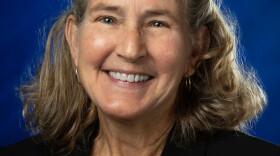Kentucky voters rejected the constitutional amendment that would have made it harder to challenge abortion bans in the state earlier this week.
The proposal was defeated by about 70,000 votes, with many rural parts of the state joining in with urban centers to reject the amendment.
Advocates hope the results will pave the way for more reproductive rights victories in Kentucky.
Rachel Sweet is the campaign manager of Protect Kentucky Access, the coalition of organizations that campaigned to defeat the amendment. She said people have underestimated support for abortion rights in largely conservative, rural states like Kentucky.
“I hope that that’s a lesson to everyone that has written off what we call red states, because people are not red and blue, people are way more complicated than that. I’m not surprised that Kentuckians decided to stand up against these extreme anti-choice policies that we’re seeing,” Sweet said.”
Sweet previously headed up the successful effort to reject a similar amendment proposal in Kansas over the summer, giving hope to abortion rights advocates in other predominantly rural and conservative states like Kentucky.
Sweet said organizers in both states were able to have nuanced conversations with voters about abortion rights.
“What we found that worked in both states was not to see our strategy from the view of an abortion rights activist. It was about crafting messaging and strategy that meets the needs and values of people, and meets them where they are,” Sweet said.
Kentucky’s proposal would have amended the state constitution to clarify that it does not guarantee abortion rights or government funding for abortion, which is already banned in the state.
Multiple lawsuits have been filed against Kentucky’s “trigger law” and six-week abortion ban, which outlaw abortion in nearly all cases. Advocates argue the bans violate patients’ right to privacy under the state constitution – which doesn’t explicitly mention abortion.
The state Supreme Court is scheduled to hear a challenge over Kentucky’s bans next week.
Sweet said in order to win in Kentucky, organizers had to run up the vote across the urban-rural divide.
“At the end of the day the majority of the vote comes from the most populous parts of the state, but that doesn’t mean we counted out the rural areas,” Sweet said.
“I think there are a lot of counties in the state that we knew we weren’t going to win. But our goal as a campaign really was to identify who are our “no” voters, and how do we best communicate with them.”
Justin Hicks contributed to this report.






